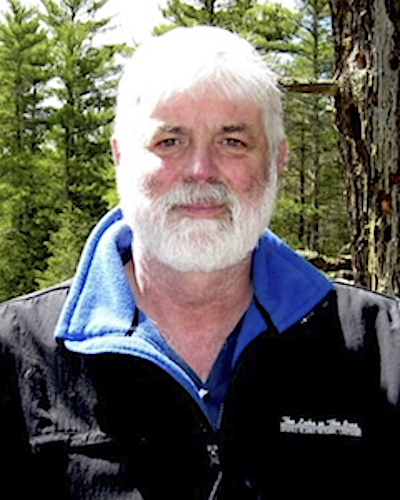Editor's note: The following column is from Bob Mackreth, who spent 27 years with the National Park Service as park ranger and historian. He is on the executive council of the Coalition to Protect America's National Parks.
The National Register serves as the nation’s official list of historic places deemed worthy of preservation. These places include a wide range of cultural resources such as buildings and structures, archaeological sites, and districts encompassing historic neighborhoods. In addition to enhancing protection of these irreplaceable resources, a National Register listing provides the property owner with access to Federal Historic Tax Credits which support preservation treatment and appropriate development.
On March 1, 2019, the National Park Service proposed several changes to the process by which sites are nominated for a National Register listing. The announcement stated that these new regulations were drafted in response to legislation passed by Congress in December 2016, authorizing minor amendments to the National Historic Preservation Act (NHPA). This act was passed in 1966 with the specific aim of requiring the federal government to pay proper attention to local concerns. Any minor amendments were intended to clarify the role of federal agencies in the nomination process and ensure adequate input from state, local, and tribal authorities.

Bob Mackreth, member of the Coalition to Protect America's National Parks' executive council.
Instead, the recent proposed changes are diametrically opposed to Congressional intent. They centralize power at the federal level by eliminating the authority of state and tribal officials to nominate any federally owned-property to the National Register and remove existing avenues for appeal of federal agency decisions. This policy shift contradicts the bedrock principles of the NHPA and turns a half-century of practice on its head.
Under this new regime, the ability of state or local governments to nominate a downtown district containing even one federal building would be taken away. If a federal agency found it inconvenient to preserve a historic property, it could refuse to submit a nomination, and there would be no way for citizens to call the agency to account. This is not an idle concern; some agencies have shown a long record of disregard for the historic treasures under their care.
To make matters worse, the new regulations would also give sweeping power to large private landowners to block National Register nominations. Legally, a nomination can be halted if a majority of property owners in a proposed historic district objected to the designation. The proposed regulations would grant that power to any owner of “a majority of the land area” within the boundary. This has the potential to give veto power to oil and gas interests, timber companies, ranchers, or other large landowners, and flies in the face of the fundamental American principle of “one person – one vote.”
The proposed changes discard long-held precedent and were formulated without consultation with state and local authorities and Native American tribes, in clear defiance of legal requirements. They represent a gift to property developers and resource-extraction industries at the expense of the nation’s historic and cultural heritage. These proposed changes must be stopped.
You can help stop the proposed changes. Visit https://www.regulations.gov/docket?D=NPS-2019-0001 and click the “Comment Now!” link. The deadline for comments is April 30, 2019.
Bob Mackreth spent 27 years with the National Park Service as park ranger and historian. He worked at several NPS units across the United States and retired in 2005 as Cultural Resource Management Specialist at Apostle Islands National Lakeshore.

 Support Essential Coverage of Essential Places
Support Essential Coverage of Essential Places







Comments
Why is this not a surprise ???
Spread the word, then please write a letter or send an email. Do something, or many of the cherished places worthy of protection will bite the dust (literally) before word gets out.
Heartbreaking!
To Whom It May Concern:
I write to oppose the proposed changes to the regulations regarding the National Register of Historic Places.
These proposed regulations, cutting off the ability of state, tribal, and local historic preservation agencies to nominate Federally-owned properties to the National Register, represent unwarranted Federal overreach. They would unreasonably interfere with community efforts to enhance preservation of sites significant to the region's diverse cultural heritage.
In addition, provisions granting veto power to individual owners of large tracts make a mockery of the fundamental legal principle of "one person/one vote."
These new rules were composed without proper consultation with state, local, and tribal representatives. They should be discarded, and any further revisions should only be drafted after full consultation with state, local, and tribal authorities.
Kris--
Your comments at NPT don't affect anything. Please follow the link in the last paragraph to make your comments at regulations.gov so that they do matter (well, maybe).